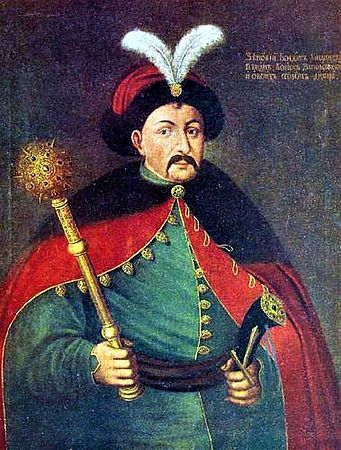The Cossack Revolt
Chmel'nytskyj and the Attempt for Ukrainian Independence

Portrait of Cossack Bohdan Chmel'nytskyj - Wikimedia
With the creation of the Polish-Lithuanian Commonwealth in 1569, many neighboring lands were absorbed into this vast union, losing both their political and religious autonomy. Kiev also came under Polish rule, forced to conform to the customs of the Polish nobility, which increasingly oppressed the local Ukrainian population.
It was in this context that Bohdan Chmel'nytskyj was born in 1596. The son of a nobleman, he became a Cossack serving the Commonwealth and King Wladyslaw IV of Poland, distinguishing himself in battles against the Ottomans and other conflicts. However, in 1647, following a dispute over his land, Chmel'nytskyj found himself abandoned by the king he had faithfully served, who instead sided with the Polish nobility. Support, however, came from his regiment and other Ukrainian Cossacks, who harbored deep resentment toward Polish rule. This growing discontent did not go unnoticed, and Chmel'nytskyj was soon arrested by Polish authorities.
After managing to escape, Chmel'nytskyj realized that, despite their exceptional cavalry skills, the Cossacks alone could not defeat the Polish army, considered the best in Europe at the time. Seeking allies, he turned to the Crimean Tatars—a Turkic people—convincing them to unite against their common enemy, despite their own long-standing conflicts with the Ukrainians.
In 1648, Chmel'nytskyj launched the first uprisings and attacks on Commonwealth territories, gaining widespread support due to both his military prowess and his skill as an orator. His victories were further facilitated by the defection of Polish Cossacks to his cause and the sudden death of King Wladyslaw IV, which left Poland leaderless. Chmel'nytskyj even captured Kiev and presented the Polish authorities with demands for Ukrainian independence.
Between 1649 and 1651, despite gaining some privileges, the fighting continued with mixed results. However, in the Battle of Berestechko, the Cossacks suffered a decisive defeat when their Tatar allies betrayed them. Though the conflict briefly reignited in 1652-53, the struggle ultimately came to an end in 1654 with the Treaty of Pereyaslav, in which Chmel'nytskyj pledged allegiance to Russia.
Giulia Lami, Ucraina in 100 date, Della porta, 2022
2025-07-26
Salvatore Ciccarello
